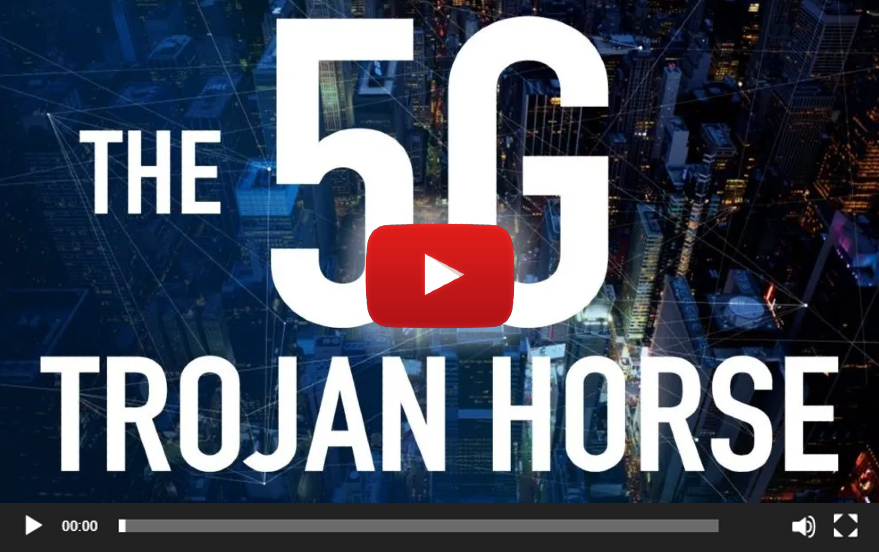Stay informed and uncover the truth with us—they’ve been lying to us for too long. Join our, Telegram Channel. Be part of the revelation.
In an era where technology permeates every facet of our lives, the push toward “Smart Cities” and “15-minute cities” presents itself as the zenith of urban innovation—a future where every necessity and convenience is seamlessly integrated into the digital tapestry of city life. However, beneath the surface of these technological marvels lies a troubling potential for control and surveillance, suggesting that these developments could fundamentally alter the nature of personal freedom and public space.
The Allure and Peril of Smart Cities
The vision of Smart Cities is compelling: urban environments rich with AI-driven services, autonomous transport, and interconnected devices that make city living more efficient. Envisioned to harness technologies like 5G and, soon, 6G, these cities aim to transform everyday interactions through innovations such as intelligent traffic systems, responsive energy saving measures, and public safety enhancements monitored by an ever-watchful network of sensors.

Yet, there is an underside to this digital utopia. The integration of the Internet of Things (IoT) in every home and street corner turns each device into a node within a vast network that continuously feeds data into systems managed by city authorities and, potentially, global tech corporations. This continuous data collection raises significant privacy concerns, spotlighted by civil liberties organizations like the ACLU, which has vocally criticized these technologies for potentially transforming civic spaces into realms of surveillance under the pretext of urban efficiency and security.
Matt Cagle from the ACLU articulates a particularly poignant critique: smart city technologies, while ostensibly benign, can be repurposed as tools of surveillance, collecting extensive data on citizens—data that was never intended to be gathered when the technologies were deployed. This creates a scenario where every pedestrian movement, every car trip, and every public gathering is tracked, analyzed, and stored in databases that could be accessed or hacked, turning private lives into open books.
➡️Breaking News!! Earth Alliance Exploits Elite-Engineered U.S. Financial Collapse to Roll Out the Quantum Financial System!
The Restrictive Promise of 15-Minute Cities
Parallel to the development of Smart Cities is the rise of the “15-minute city” concept—a model of urban design that advocates for a lifestyle where all essential services are within a 15-minute walk from home. This approach, championed by thinkers like Carlos Moreno and adopted in cities such as Paris, aims to reduce dependency on vehicles, lower carbon emissions, and foster local communities.
However, critics argue that the 15-minute city model could also serve as a subtle mechanism for controlling movement. By designing cities in such a way that necessities are only accessible within a short walk, there is a potential for limiting how far residents can travel without facing restrictions or surveillance. The implementation of systems like traffic filters and monitoring cameras in places like Oxford, England, reveals a dual use for these urban planning innovations: they can enhance community life while potentially restricting personal freedom and privacy.
The backlash against such measures has been significant. In Oxford, for instance, residents have organized protests against traffic filters, which they perceive as undue restrictions on their movement. Such resistance highlights a broader concern about the potential for 15-minute cities to become not just walkable communities but also controlled environments where the government can monitor and even dictate daily movements and interactions.
Global Ambitions and Local Realities
The drive towards Smart Cities and 15-minute cities is not merely a collection of isolated urban projects but is part of a global agenda endorsed by powerful entities like the World Economic Forum and the United Nations. These organizations promote Smart Cities and 15-minute cities under the banner of sustainable development and climate action. However, their involvement raises questions about the scale and implications of these initiatives, particularly regarding who controls the data and infrastructure of these digitized cities.
➡️Global Terrorism: How Governments Are Killing Citizens with Laws and Manipulation – Nothing Is Real, They Just Want to Control Your Life!
The potential global standardization of urban life through these initiatives fits into a larger pattern of technological governance that prioritizes data collection and surveillance capabilities. As cities around the world adopt these models, the uniformity of technology use could lead to a homogenization of urban life, where diverse cultural and social practices are overshadowed by a standardized, monitored, and potentially restrictive urban policy.

Empowering Resistance and Alternative Visions
Despite the overwhelming momentum of these urban transformations, there is a burgeoning movement of resistance and alternative thinking. Community groups, activists, and concerned citizens are coming together to challenge the imposition of these technologies and to propose alternative visions of urban development that prioritize human rights, community control over technology, and the preservation of public spaces free from surveillance.
Organizations are hosting workshops and forums, activists are staging protests, and local governments are being called upon to consider the long-term implications of their smart city initiatives. Through these efforts, there is a growing recognition that the future of our cities should not be dictated solely by technological imperatives but by a balanced approach that respects personal freedoms and fosters genuine community development.
In conclusion, as we stand at the crossroads of urban innovation and personal liberty, it is crucial that we scrutinize these developments and actively engage in shaping the future of our cities. The dialogue between technology and urban life must be ongoing, with a vigilant eye on preserving the freedoms that underpin our societal values. The battle for the soul of our cities is not just about privacy or convenience but about maintaining the essence of democratic, open societies in the face of encroaching technological control.




